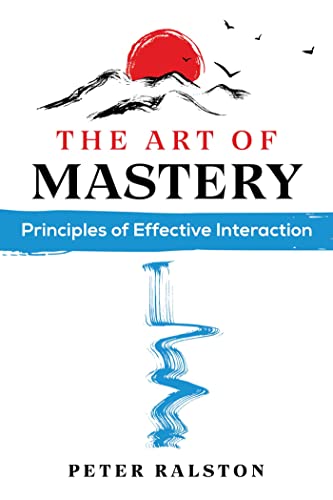
The Art of Mastery: Principles of Effective Interaction

Elements of Correction Not Knowing: create a blank state from which to change course as necessary. Freedom from Assumptions: discover and discard inappropriate assumptions. Letting Go: give up whatever you are doing that is ineffective. Generating: create new thought, strategy, and/or action that is effective.
Peter Ralston • The Art of Mastery: Principles of Effective Interaction
Mastery is all about relationship—you relating with something or someone else. To help rethink overlooked assumptions that govern the general cultural interpretations of relationship, here are four assertions and a recommendation: Relationship is not an object (it is an assessment and an activity). Relationship cannot “not work.” It is only what is
... See morePeter Ralston • The Art of Mastery: Principles of Effective Interaction
A response arises from a calm mind and sensitive awareness. The intent of responsive action is to produce what is needed and appropriate. A reaction arises from automatic impulses that tend to be motivated by such activities as fear, desire, resistance, vulnerability, anger, or other knee-jerk self-protective actions. Reactions are an attempt to
... See morePeter Ralston • The Art of Mastery: Principles of Effective Interaction
Never make the strategy master over the objective. The strategy should always serve the objective, and change the moment it doesn’t.
Peter Ralston • The Art of Mastery: Principles of Effective Interaction
You should immediately compare your objective to what’s occurring; this provides an idea of what needs to occur to reach your goals. It is imperative that you do not make the objective subservient to the strategy.
Peter Ralston • The Art of Mastery: Principles of Effective Interaction
State “State” is the particular condition of mind that someone is in at any given time. It seems as if your mood, emotions, and state of mind are produced by circumstances. But this is only because your interpretation automatically relates circumstances to yourself and you react accordingly, making it appear like you really have no choice in the
... See morePeter Ralston • The Art of Mastery: Principles of Effective Interaction
Creatively question your perceptions, and stay open to what may be unnoticed.
Peter Ralston • The Art of Mastery: Principles of Effective Interaction
Tailor Your Actions to Your Objective A finely tuned sensitivity should arise from an ongoing comparison of the arising process to your objective. Strategies can then be created to achieve your objective. Strategies and goals should exist solely to serve the objective. Never make the strategy the objective.
Peter Ralston • The Art of Mastery: Principles of Effective Interaction
Must Relate “Relate” means: “make a connection between.” Your actions need to connect with and respond to whatever it is you are interacting with. One of the principles that greatly assists responsive and appropriate relating is to “follow” what’s happening—to perceive and have your actions relate to everything that is occurring as it is occurring.
... See more